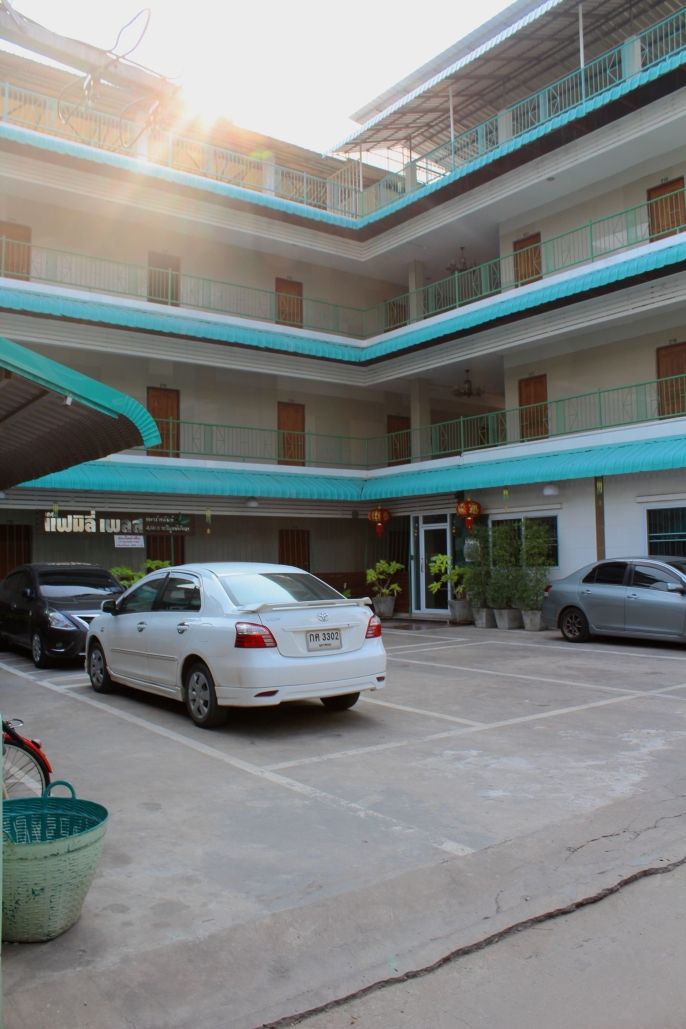How to Find an Apartment in Thailand and What to Expect
How to Find an Apartment in Thailand and What to Expect
Living as a teacher in Thailand is different from traveling because you live there. Unlike transient traveler in and out of hostels, you will have a permanent address. You will have keys and have to clean. It’s a normal life. Having a place of your own is one of the major factors setting apart living in Thailand from traveling through Thailand. When you have a place, neighbors, and a normal routine, you get a much more authentic and intimate experience with Thai culture and society.
How We Found It
Our school actually set us up with the apartment, and the rent is factored into our salary. They picked us up from the bus station our first day and took us straight to the complex. We were shown an apartment and introduced to Nit, our Thai apartment supervisor. She is feisty little old Thai woman who we go to whenever we have an issue with our place. We pay everything in cash. So we pay the school who actually pays the apartment complex our rent, but we pay our utilities in cash directly to Nit. Overall, the small studio in apartment costs about $90 and our utilities come out to roughly $10-$20 depending on how much we need to use the AC.
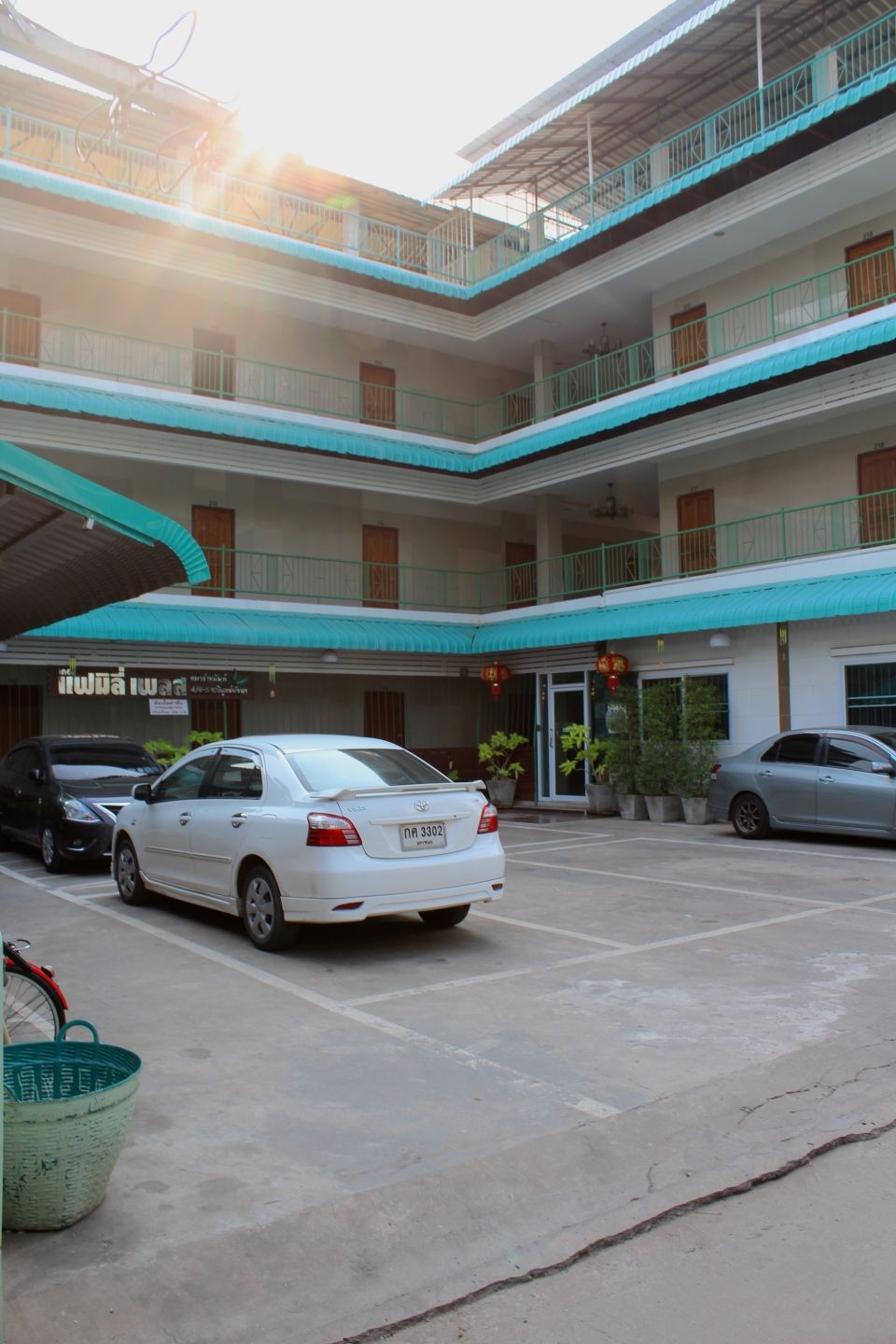
The Digs
My wife and I live in a small studio apartment with a small balcony. The amenities include a mini fridge, western style bathroom, closet, table, chair, and bed. It’s pretty bare. We’ve done our best to liven the place up, but it’s a little box. Luckily, we have an AC unit and a fan for the hotter months of the year.
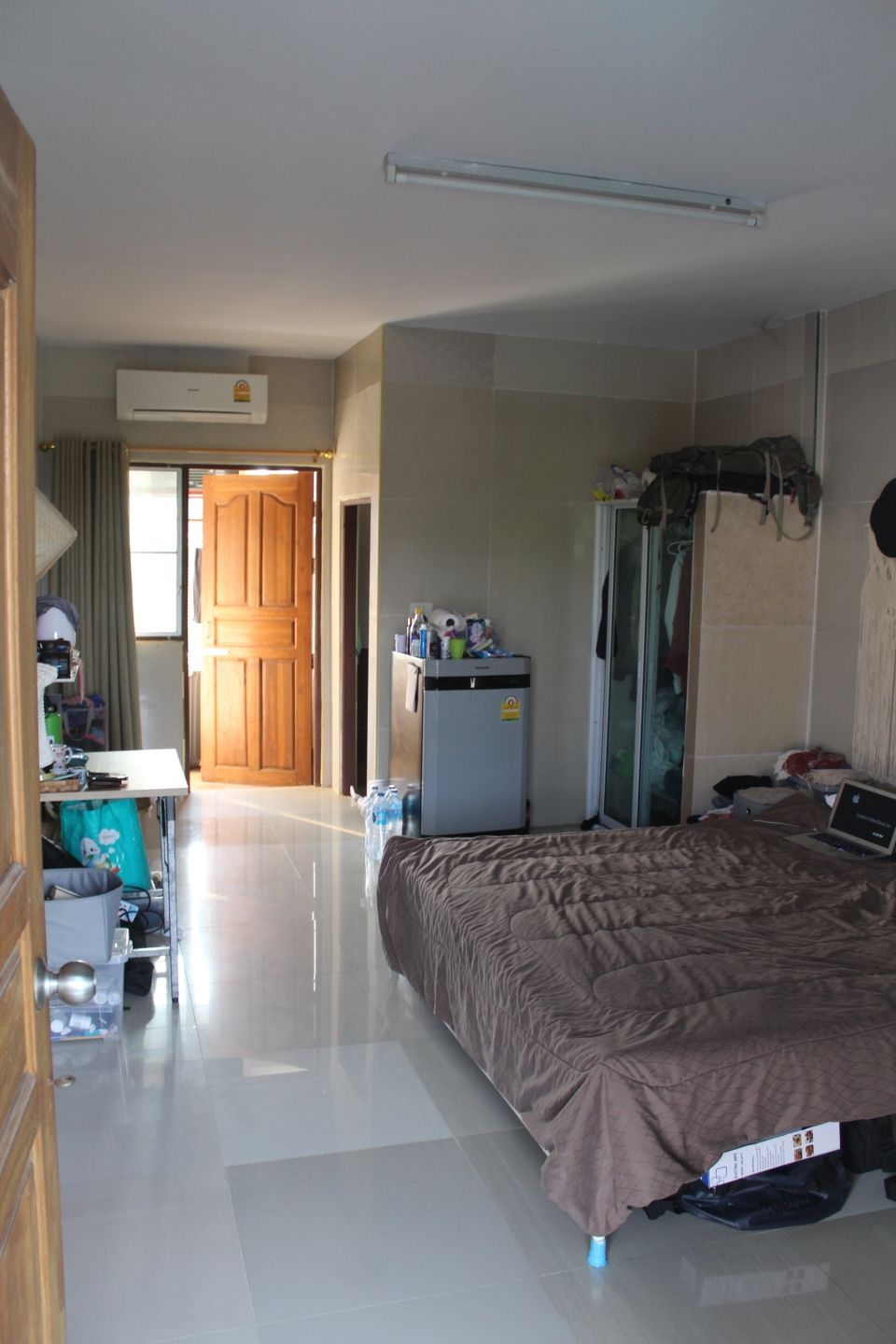
The complex has covered parking for our motorbike, solid security, and coin-operated laundry. In many ways, living here feels very similar to apartment living in America. There are some differences though. For example, we can’t really talk to our neighbors, not that you necessarily do that in America.
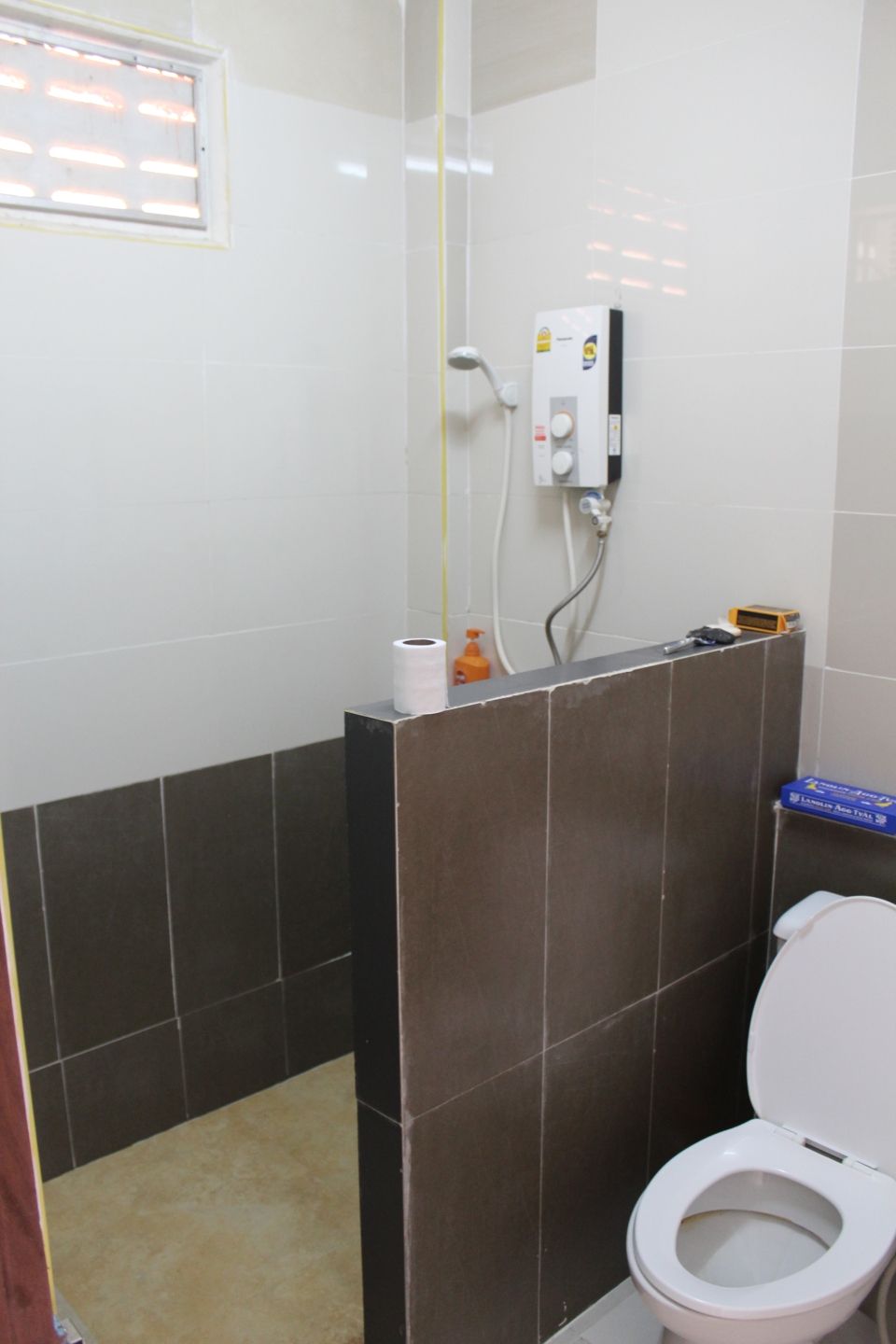
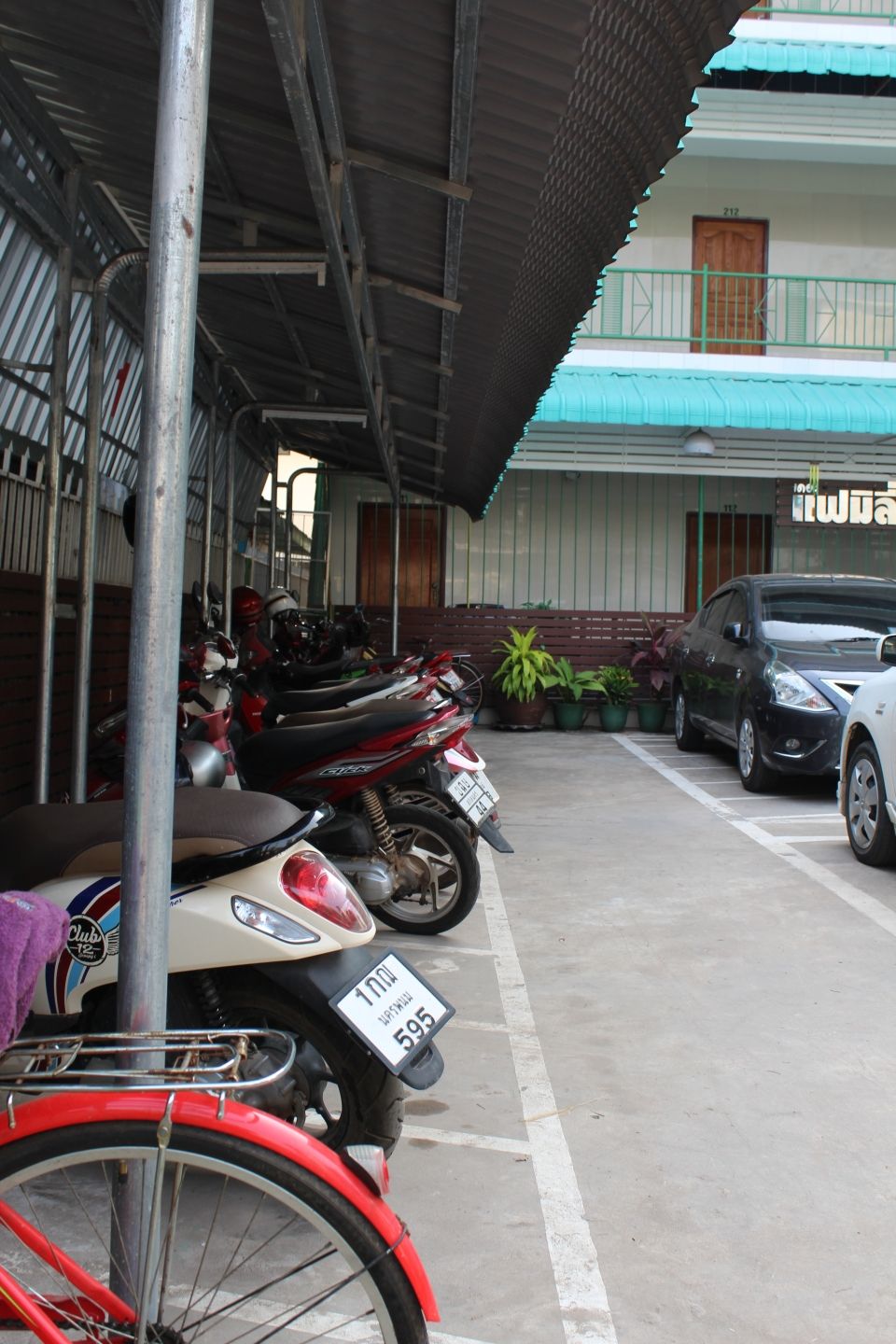
AC
We use our AC minimally. During rainy season and Winter, we didn’t really use it at all. During those months our utility bill including water and power ranges from 250-400 baht. In Summer, we use it more often and it ranges from 400-650 baht. Our typical strategy is to come home in the afternoon, take a cold shower, then open the doors and windows to let in the breeze. After it gets dark, we close the doors and will use the AC intermittently through the evening. When we finally go to sleep, we turn it on to cool down the apartment and then turn it off as we go to sleep. We weren’t sure how our use stacked up against the locals until we were mistakenly given our neighbors utility bill for 4000 baht. Apparently, our neighbors use their AC more than we do.
Rainy Season
Rainy season is rough. Think of an unending downpour for two or more months. Seriously, at one point it rained for a solid month straight, no kidding. This is hard enough psychologically but also takes a toll on your physical living. It’s much easier to get sick and mold develops. The mold is a real problem if not dealt with. It started to grow all over our clothes, walls, and bathroom. We literally had to wash everything, which then was difficult because couldn’t dry it out in the rain. Finally, after doing smaller loads and drying them when the rain paused, we got them dried and stored better. We used vinegar to clean the mold off our clothes and walls. Vinegar kills mold, is cheap, and readily available. So we sprayed down our clothes, walls, and pretty much everything. We kept vinegar on hand until rainy season finished. Just be careful on metal because vinegar causes rust. Learn from my mistakes!
Bringing Accessories from Home
Coming from home we thought we’d be smart and bring little collapsible storage bins and lights. The little bins worked out fine, but they have cheap ones here in the store, which would have been just as easy to buy. As for the lights, the wattage is different here. So we plugged in our lights, and they burned out in minutes. So that was a flop. Honestly, you can get most of the home goods for your apartment that you would bring from home here in Thailand. So if you want to, you can bring stuff, but you can also buy cheap stuff here which is designed for Thailand.
Conclusion
Living in Thailand means have a place of your own. While there are some differences, the experience of living in an apartment in Thailand really isn’t all that different from living in one back home. Make it your own, and you will have a refuge as you adjust to living in Thai society.
Related Posts
Unexpected Things I Wish I Knew Before Moving to Thailand: The Ultimate Guide to Living in Thailand
I'm sure you've read enough big-picture descriptions of daily life as an American expat living in Thailand. Now, indulge in some of the quirks and seemingly small idiosyncrasies that define daily life here, based on my personal experience living right outside of Bangkok.

Teaching English Abroad: Thailand vs. Hungary Comparison
Meet Sarah- a CIEE Teach Abroad & TEFL Alum! 😊 Hi, I’m Sarah! I’m originally from New Jersey, but for the last 4 years I have been traveling all over... keep reading
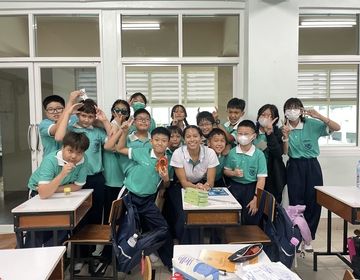
Rewriting My Top 10 Reasons: What a Year in Thailand Taught Me
Revisiting my First Blog Post If you scroll through my blog posts, you will find my first post: Why to Teach English in Thailand: My Top 10 Reasons. For anyone... keep reading
